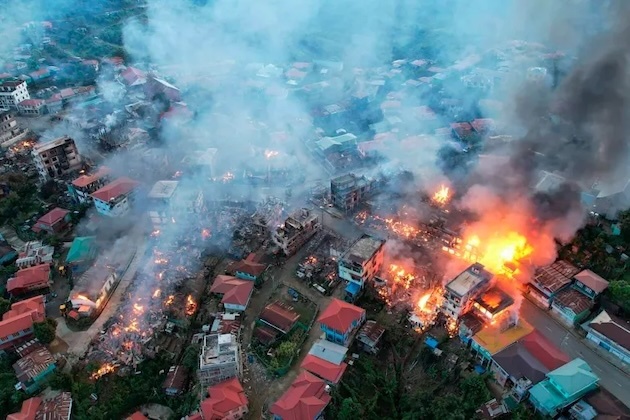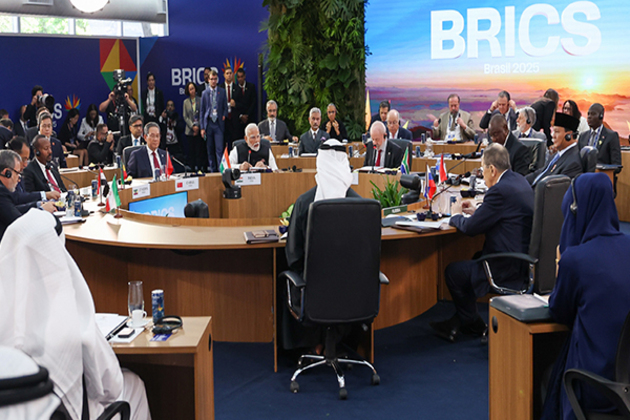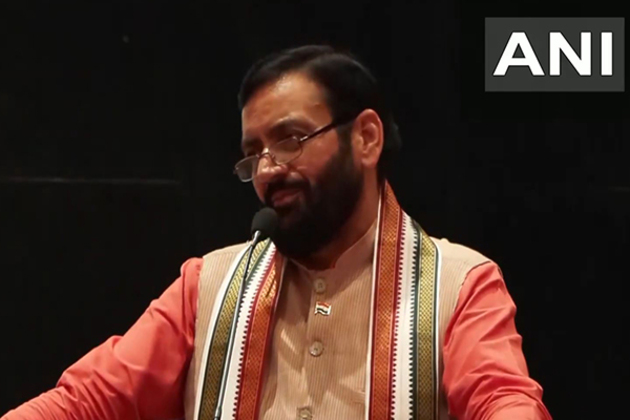Texas blackouts show us why energy should be considered a universal right
The Conversation
24 Feb 2021, 00:11 GMT+10

An unprecedented cold wave in the US state of Texas recently left several million households without power for days on end, as temperatures dropped well below freezing. Dozens of people died from hypothermia, car crashes, house fires or carbon monoxide poisoning from running cars or generators simply to keep warm.
The particular circumstances that led to such widespread grid failure, including how the state has chosen to organise and run its electricity infrastructure, are being loudly debated. There are, though, wider issues to consider.
Blackouts, of whatever cause, always reveal a deeply rooted dependence on flows of energy to power the rhythms of modern living and keep day-to-day health and well-being in balance. When the power fails, the consequences can be devastating. Those most vulnerable to the cold or heat - older people in particular - and those living in poor quality housing, can die as a consequence of technologies losing their power. This adds to the background toll of "excess deaths" linked to energy poverty on an annual basis.
At moments like this, the basic rights of citizens to infrastructures that work are called into question, not just in Texas, but far beyond. In my academic research I have looked at what it would mean to make energy a universal right. Surely we should now be asserting this basic right, including for the 10% of the global population without access to even basic electricity provision?
At first sight the case is compelling. After all, energy enhances many of the basic capabilities of a decent life, not only good health, but also education, communication, livelihood, self-respect and conviviality. But as with many assertions of fundamental rights, details and interpretations matter.
Energy that works
Having an infrastructure in place is fundamental, but it needs to be one that works, that is well maintained and is resilient, including in the face of the types of (predictable) climate change-induced extremes experienced in Texas. Energy bills also need to be affordable, with cost structures that do not penalise those on low incomes and that ensure that a baseline of access can be sustained when times are hard, or needs are most intense.
In the UK, households have a legal right to not be disconnected from the water supply, but they can be disconnected from energy, including when the money runs out in pre-payment meters found in many low-income households - a process known as "self-disconnection". Policies are in place to protect categories of energy-vulnerable households, overseen by the regulator Ofgem, but a universal right to electricity or gas connection does not exist.
Regulatory structures matter, and experience has shown that the state cannot just leave energy provision to the unfettered market, with profit above all else determining how energy is supplied and consumed. It can instead enforce clear social obligations on energy suppliers, or it can take electricity infrastructure into public ownership. But either way, the state has a responsibility it cannot shirk to ensure what should be basic rights for its energy-consuming citizens.
A right to low carbon living
Two further important considerations also have to be factored into a general notion of the right to energy. First, we should be doing all we can to ensure that the energy that is used, is used well - it is madness to be putting energy into homes and other buildings, for it then to leak out again so easily.
This highlights that nobody really wants to consume energy per se. It is the heat, light, cool, communication, mobility and so on that are really valued and that really matter. There should therefore be much more focus on realising such services in ways that minimise energy use and energy bills, and cutting energy demand as part of zero carbon trajectories.
Second, the citizen's right to energy has now to be asserted as a right to low carbon energy, or more generally as a right to low carbon living. There is some irony that Texas, a US state so deeply implicated in fossil fuels, is now experiencing a hard kick back from climatic change. Maybe in a post-Trump world that irony will not be so readily ignored.
In a climate emergency, the right to energy cannot be realised through old energy infrastructure, using old models of carbon-heavy generation. Universal provision is crucial, but the right to energy and the right to low carbon living have to work hand in hand, if we are to avoid further deepening the consequences of the climate crisis in Texas and many other parts of the world.
Author: Gordon Walker - Professor at the Lancaster Environment Centre and previously co-director of the DEMAND Centre, Lancaster University 
 Share
Share
 Tweet
Tweet
 Share
Share
 Flip
Flip
 Email
Email
Watch latest videos
Subscribe and Follow
Get a daily dose of Asia Pacific Star news through our daily email, its complimentary and keeps you fully up to date with world and business news as well.
News RELEASES
Publish news of your business, community or sports group, personnel appointments, major event and more by submitting a news release to Asia Pacific Star.
More InformationAsia
SectionTrump signals progress on India Trade, criticizes Japan stance
WASHINGTON, D.C.: President Donald Trump says the United States could soon reach a trade deal with India. He believes this deal would...
Dalai Lama to address Buddhist conference, reveal succession plan
DHARAMSHALA, India: The Dalai Lama is set to address a significant three-day conference of Buddhist leaders this week, coinciding with...
UN Demands End to Myanmar Violence as Junta’s Election Plans Risk Further Instability
Nearly three months after a devastating earthquake struck Myanmar, the country remains trapped in a deepening crisis, compounded by...
Condemning terrorism should be our 'principle', not just 'convenience': PM Modi at BRICS summit
Rio de Janeiro [Brazil], July 6 (ANI): Prime Minister Narendra Modi, during the 17th BRICS Summit on Sunday, asserted that condemning...
Haryana to develop Asia's largest jungle safari in Aravalli Hills
New Delhi [India], July 6 (ANI): A grand jungle safari project coming up in the Aravalli Hills is going to redefine Haryana's identity....
Western AI doesnt answer questions it installs values
Generative artificial intelligence spreads across the Global South, and with it spread values, ideals and modes of thinking Generative...
Business
SectionUS debt limit raised, but spending bill fuels fiscal concerns
NEW YORK CITY, New York: With just weeks to spare before a potential government default, U.S. lawmakers passed a sweeping tax and spending...
Shein hit with 40 million euro fine in France over deceptive discounts
PARIS, France: Fast-fashion giant Shein has been fined 40 million euros by France's antitrust authority over deceptive discount practices...
Meta hires SSI CEO Gross as AI race intensifies among tech giants
PALO ALTO/TEL AVIV: The battle for top AI talent has claimed another high-profile casualty—this time at Safe Superintelligence (SSI),...
Engine defect prompts Nissan to recall over 443,000 vehicles
FRANKLIN, Tennessee: Hundreds of thousands of Nissan and Infiniti vehicles are being recalled across the United States due to a potential...
Microsoft trims jobs to manage soaring AI infrastructure costs
REDMOND, Washington: Microsoft is the latest tech giant to announce significant job cuts, as the financial strain of building next-generation...
Stocks worldwide struggle to make ground Friday with Wall Street closed
LONDON UK - U.S. stock markets were closed on Friday for Independence Day. Global Forex Markets Wrap Up Friday with Greeback Comeback...













